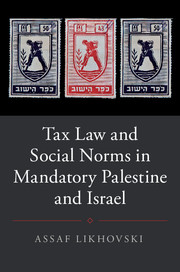The European Society for the History of Political Thought (ESHPT,
http://europoliticalthought.wordpress.com ) invites proposals for individual papers and panels for its next international conference. In view of the contiguous research areas with (comparative) legal history, we reproduce the call:
Amongst
the keywords that have shaped the language of media, public
conversation, politico-economic discourse and academic debate in the
last few years, ‘crisis’ holds a prominent place. The term is applied to
a huge variety of domains: from the never-ending cries of a ‘global
economic crisis’ to descriptions of war zones as ‘crisis-torn’, on to
characterisations of professionals as ‘crisis-experts’ as well as
references to governmental ‘crisis-management’ teams. The frequency with
which the word is utilised though does not signify clarity of meaning,
nor does it denote historical and theoretical accuracy with regard to
its origins and usages. In fact, the wide range of uses makes it for
much uncertainty: from indicating stark alternatives and non-negotiable
decisions, it has assumed vague connotations, which might be seen as a
sign that the current historical era is deeply marked by instability and
lack of clear direction(s).
If the Oxford English Dictionary
stresses that ‘crisis’ pointed, first and foremost, to the medical sense
of ‘the turning-point of a disease for better or worse’, before the
connotations closer to those normally referred to nowadays, that is of
‘times of difficulty, insecurity, and suspense in politics or commerce’,
it is important to underline that plenty of historians have reflected
on crisis from different angles. Economic and social historians (Eric
Hobsbawm, Hugh Trevor-Roper, Roland Mousnier, Geoffrey Parker and
others) have addressed the ‘
general crisis of the seventeenth century’
as a series of calamities in Europe inaugurating the dynamic development
of capitalism and the emergence of modern states. In a similar vein,
Paul Hazard described the late seventeenth-century
‘crisis of the
European mind’ as leading to the Enlightenment, while according to
Reinhart Koselleck enlightened ‘critique’ represented a challenge (i.e.
of the political by the social, ethical and cultural), and ‘crisis’ the
moment of subversion. In each of these approaches the idea of ‘crisis’
comes across as a kind of ‘testing time’ that might give rise to new
experimentation. As a matter of fact, this throws interesting light on
the current, apparently ‘critical’ predicament of liberal democracy and
the agenda this might prescribe for political theorizing.
Whilst
taking into consideration these approaches (which are just a sample),
our conference at Heidelberg University, where Koselleck was a student
and wrote
Kritik und Krise, is shaped by the thematic and methodological
preoccupations of the history of political thought. Our aim is to
broaden some of these themes in new directions and investigate the
notion of
‘crisis and renewal’ (also as a mirror image of work on
‘
decline and fall’). We ask papers to focus on the ways in which the
self-reflection of innovative thinkers in critical times moulded their
vocabularies and the modalities in which the ‘critical’ element of their
contributions was articulated. We invite proposals that address, but
are not confined to, the following questions:
- How does political thought react to critical moments in history?
- Does political thought produce ‘crisis/es’?
- Are moments of ‘crisis’ also moments of creativity for the history of political thought and political theory?
-
Are existing concepts at a given time suited to face crises or are
established principles employed in different ways to respond and make
sense of them?
- How can we theorise, indeed reflect both theoretically and historically, vis-à-vis (notions of) ‘crisis’?
-
How do we account for the complex changes and developments occurred in
the meanings of ‘crisis’ from ancient Greece (where the word was coined)
up to the last few decades?
- What trajectory/ies did ideas of crisis take in different contexts at different historical junctures?
-
What are the relations between political ideas and material factors
such as famine, war, weather etc. in conjunction with ‘crisis’?
These
questions need to be addressed by embracing the full geographical and
chronological spectrum of ‘European political thought’ from antiquity to
the present. G
iven the interdisciplinary nature of the ESHPT and of the
discipline of the history of political thought, we welcome papers and
panels seeking to cover some of the questions above from multiple
methodological and historiographical perspectives (e.g., political
thought, political theory, history, philosophy,
law).
Keynote speakers: Erica Benner (Berlin)
Paschalis Kitromilides (Athens)
Proposals
for individual 20 minute papers should be no longer than 250 words, and
proposals for panels should not exceed 500 words. Short CVs of the
speakers should be added (name, institutional affiliations, major
publications – no more than five). Panels at the conference will
normally last 90 minutes, with 3 papers each. (Exceptionally, panel
proposals consisting of more than 3 papers can be accommodated.)
Please
send your proposals by 30 September 2017 to László Kontler,
kontlerl@ceu.edu, cc to Gregor Stiebert,
gregorstiebert@zegk.uni-heidelberg.de.
Authors will be notified of paper acceptance or non-acceptance by 15 December 2017.






